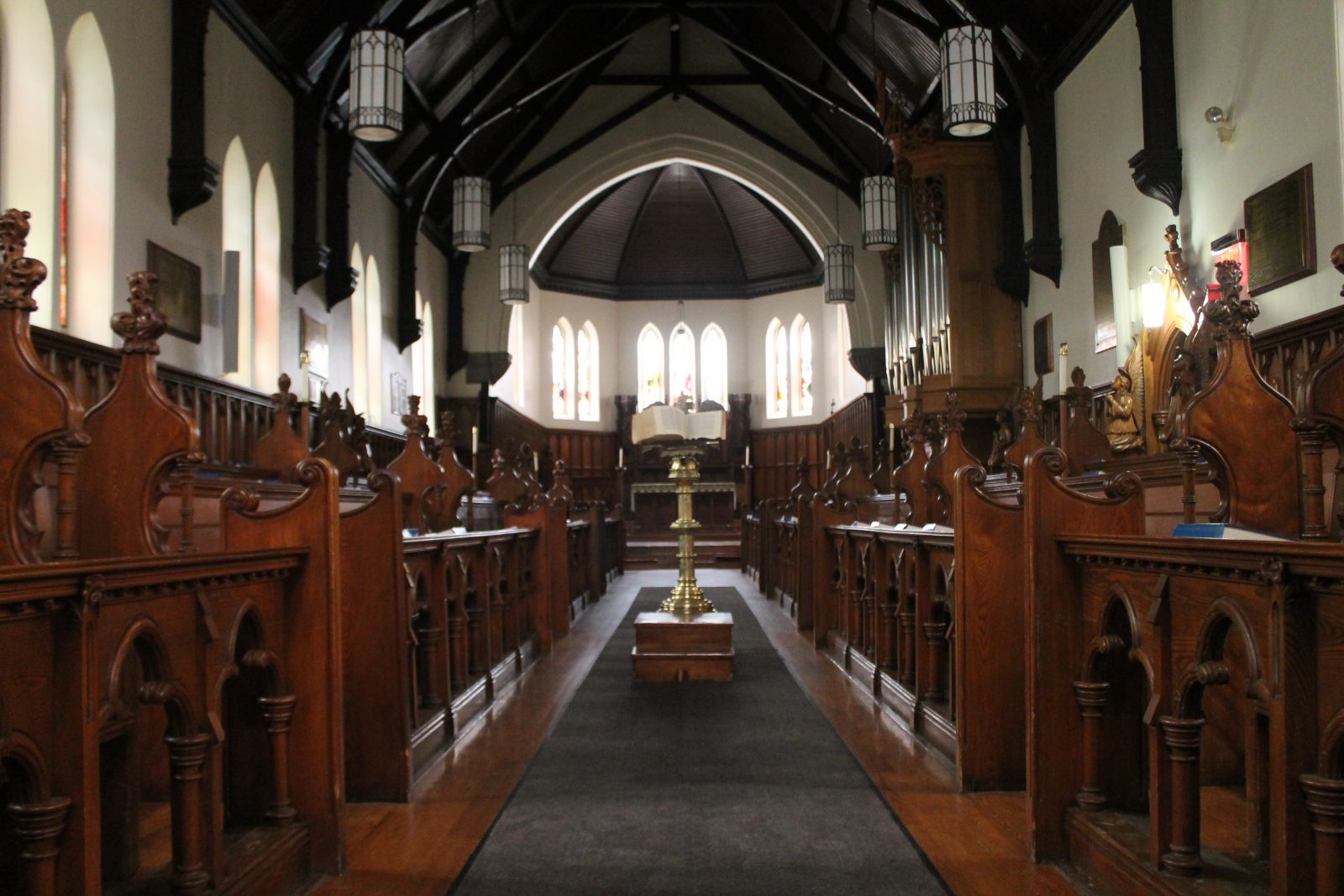Bishop’s University students go back to class tomorrow but already Heather Thomson, Campus Minister, is so hard at work that it can be difficult to track her down. Though the name of Thompson’s position makes it sound linked to Christian faith, the Campus Minister explained that hers is a multi-faith posting, meaning that she is the go-to person on campus for all the spiritual and religious needs of the Bishop’s and Champlain communities.
“I’m here to help,” Thomson said. “The vast majority of our students are not practising any faith, however the Campus Minister is there to help students with the big life questions; “who am I?” “What’s the meaning of my life?” “What is my purpose?” Those are essentially, in my mind, spiritual questions.”
The Campus Minister explained that her role dates back to the early 1970s when Bishop’s School of Divinity closed. While the divinity school was open there was an obvious pastoral presence on campus for those who might need that kind of support. Thomson explained that local church communities, sensing a vacuum, banded together to try to maintain that form of spiritual support collectively. As a result she said, the Campus minister is not actually a university employee but is instead hired by an oversight committee made up of members of different local churches. Though both the University and Champlain College contribute financial and other resources to the work of the minister, the majority of funding comes from an array of local churches.
“Although heavily supported by Christian churches, the Campus Minister is there for everyone,” Thomson said. “As the population has grown and changed over the years, we have an increasing number of students from different faith backgrounds.”
Though Thomson is an Anglican Priest, she said that the experience of being a resource and support person for such a wide variety of different belief systems and perspectives is an enormously positive experience.
“It’s so dynamic,” The campus minister said. “I love it. It makes me think about what is important to me and how different faiths can collaborate and do things together.”
While part of the many responsibilities of the Campus Minister is the oversight of Bishop’s St. Mark’s Chapel, the ministry of the position is much less focused on preaching and pews than it is on active involvement in the local school community.
Bishop’s University defines Campus Ministry as seeking to, “foster faith development, spirituality and social justice,” and states that, “the Campus Minister provides pastoral services to all members of the campus community and is available to discuss in confidence whatever interests and concerns people may have.” Based out of the Campus Ministry Office in the Marjorie Donald Building, the minister meets both one on one with students to talk about matters of personal concern or academic interest and with a variety of local campus and community groups.
For Thomson, that manifests in a variety of different ways, from ensuring the presence of prayer rooms or quiet spaces on campus for those students who may need them, to overseeing the Christian, Jewish, and Muslim student clubs on campus. Looking back on 25 years in the role, she also underlined a strong link between the Campus Minister and social justice initiatives such as the BU/CRC Refugee Student Sponsorship project and the Empty Bowls project.
“It just amazes me the time that students are willing to give up to help other people,” Thomson said, “These students just have a heart and a desire to make a difference in this community and elsewhere.”
While stating that moods, opinions and involvement shifts over time as different students come and go, Thomson said that she doesn’t see any stigma against spirituality on campus. Generally, she said, her interactions are with students who would never think of going to church, but who nonetheless want to make a difference in the world.
“We’re in an age of, “I’m spiritual but not religious.” The Campus Minister reflected. “People are, I think, more accepting of others who are seeking something to base their life on.”
Aside from on-campus life, Thomson also tries to maintain ties with all of the various religious groups in the local community.
“I try really hard to have great lines of communication with all of them,” the minister said. “I usually have a brochure that lists all of the different churches, their times of worship and their contact information.”
Given the difference in the structure of Campus Ministry from traditional church ministries, one might think that the challenges facing churches in the modern day don’t have an impact on Thomson’s work, but she pointed out that since the funding for her position comes from local churches, there is a very direct link.
“As there’s been changes in church demographics, the ability of the various denominations to contribute has really diminished,” Thomson said, pointing out that contributions from the United Church have decreased significantly recently, and saying that the Roman Catholic Diocese cut funding altogether about five years ago. “It’s always very precarious for us. There have been other points in time when funding has been more secure.”
Campus Ministry accepts donations to help keep the position staffed and viable, and Thomson said that as large church organizations have cut their funding, certain local congregations have stepped up to try to fill in the hole, but she said that being able to keep funding the current model of campus ministry is probably the biggest challenge facing the community looking into the future.
Far from lingering on that concern, however, Thomson was nothing but positive about the work that she does for both the Bishop’s and Champlain communities.
“I love working on the campus,” the Campus Minister said. “Every year is new and different and I have such wonderful colleagues. I find it a great place to work.”






